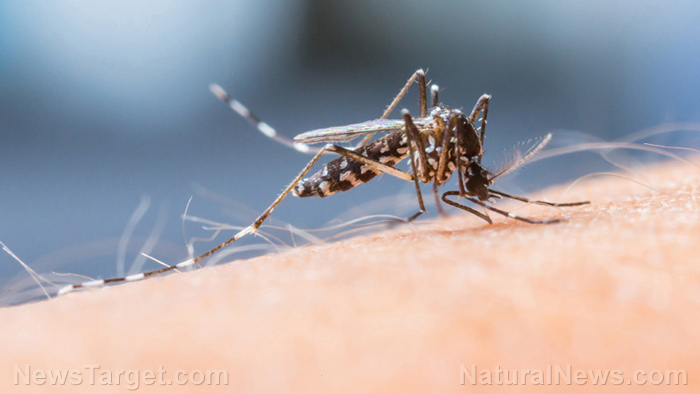
Proper nutrition is the original, fastest, and most effective means of improving your health. It can strengthen the immune system, improve the emotional state of a person, and present a much better and more attractive physical appearance.
Nutrition also exerts a significant effect on the endocrine system. One of the most vital systems of the human body, the endocrine system makes sure there are enough hormones to facilitate the proper functions of the body.
The thing about hormones is that they are fatty and dense. These are traits shared with cholesterol. Since proper nutrition can regulate cholesterol, many of the same principles also apply to hormones. (Related: Groundbreaking study looks at the regenerative potential of vitamin C for hormone health and cancer prevention.)
Insufficient nutrition will hamper the body during the menstrual cycle
In women, the endocrine system also controls the menstrual cycle. It releases important sex hormones like estrogen, progesterone, and the follicle-stimulating hormone.
Estrogen and progesterone are the most important hormones involved in the menstrual cycle. They trade places with each other during the natural progression of the cycle.
During the initial "follicular phase," the levels of estrogen are at their highest. In the succeeding "luteal phase," estrogen levels fall while progesterone levels rise.
This complex cycle is powered by blood. The raw material used to make blood comes from digested food. So do the nutrients that the blood hauls to the endocrine system.
However, women are prone to overthink, stress, and worry about things. They can also be exposed to air pollution that disrupts their cycle.
Symptoms of blood deficiency include inefficient digestion, gas, bloating, and irregular elimination of waste. An insufficient amount of available blood could cause a woman to feel listless before and after her period took place.
Eat the right foods to overcome nutritional deficiencies and hormonal issues
This deficiency can be overcome by consuming foods that have plenty of vitamin B and iron. Examples include beets, beef, and leafy greens.
Consuming nutritious food is not enough. You also have to practice good eating habits. You need to eat meals at regular times in the day, focus on chewing the food properly, and avoid doing other things while eating. The combination of the right food and the right eating practice will ensure that you have enough amounts of healthy blood and digestive energy.
Nutrition can also be used to directly manage the levels of estrogen and progesterone in the body. Essential oils and fatty oils are very good at improving the concentration of these hormones.
Keep track of your menstrual cycle. This will let you figure out the particular hormone that needs support and the time you need to support it.
To increase estrogen levels, you should consume eggs, flax seeds, millet, mung bean sprouts, pear, tofu, and yams. For progesterone, the recommended foods are ginger, lamb, leek, sesame seed, sunflower seed, and quinoa.
All these foods should be organic. The meat needs to come from animals that have been fed fresh grass, while the plant products must not come from GMO crops.
Find out how to naturally manage the hormone levels of your body at WomensHealth.news.
Sources include:
Please contact us for more information.























